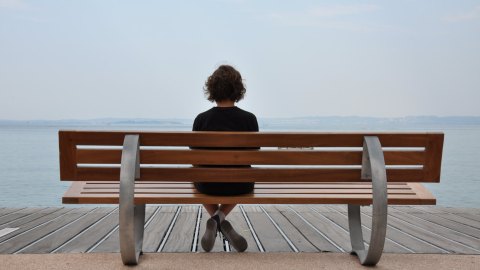Why Do We Feel Lonely?

Why do we feel lonely? When asked, people usually shrug and say, “Because we’re social creatures.” Well, OK, but what causes loneliness to make us feel depressed to the point where we become sick? Loneliness brings on some serious, life-threatening symptoms. One study has even found links to social isolation causing increased risks to cardiovascular health. Turns out these bodily reactions may be nature’s way of motivating us to find a social group.
Taryn Hillin from Fusion writes on a recent study that seeks to explain the origins of these physiological and psychological reactions we experience when we become lonely. The findings, published in Perspectives on Psychological Science, point to evolution:
“… loneliness is viewed as an aversive signal that indicates that important social connections are at risk or absent and acts as a motivating force to reconnect with others. As such, loneliness has played an important role in the evolution of the human species, given that reconnecting with others increases one’s chances of survival and opportunities to pass on one’s genes to the next generation.”
The researchers support their findings with genetic data taken from several studies involving twins, relatives, and adopted children to see if the trait was, indeed, a part of our genetic makeup. They found that loneliness can be passed down from parent to child with an inheritance rate of just below 50 percent, which the researchers considered “significant.”
Loneliness isn’t all nature; nurture plays a role as well. These genes also have an environmental component that influences their development — much in the same way scientists found feral children had difficulties learning a language after being isolated for so long. The researchers wrote that people who “experience a low level of social support clearly feel more lonely than do carriers of that same allele who experience a high level of social support.”
As a result, some of us have a higher tolerance for being lonely, which influences the way our bodies react to social inaction. But the ability to feel loneliness is in most of us, and it’s meant to drive us to seek human interaction in order to survive.
Read more about the origins of loneliness at Fusion.
Photo Credit: Shutterstock





